You have two voices; voice of the instrument and the voice of the vocals... How different or same are they?
I think about this often and I wonder how different or similar they are. But I like to think of them merely as two different mediums emanating from the same source. It’s more about a way of expression rather than the expression itself. When I started off as a performer, many people told me to stick to one of the two and I honestly couldn’t ever make up my mind because I felt close to both of them in very different ways. I now think of these two voices as very innate extensions and expressions of my own self and personality. In my mind, I’m thinking vocally but as an instrumentalist, I can cater to different situations and emotions, and yet, they are still me, and are alway s going to be that.
What qualities of the flute do you think have extended to your own personality?
I think the flute as an instrument evokes among people a meditative, serene, peaceful kind of energy. But you must know that my music has been shaped by the vocabulary of the Carnatic framework, and rhythm therefore is a very integral aspect of my music. I am a happy co-existence of both these qualities - reflective and rhythm-driven. There is a part of me - and my family and friends will vouch for this - that is very hyper; I can be really chatty, chirpy and random at times. But I also like to think of myself as someone with a great amount of patience. I think the flute is like that - it’s an instrument that is peace-evoking and at the same time, endowed with fabulous rhythmic abilities.
In one of your interviews, you speak about how, sometimes when you play the flute, there is a kind of an obsession and at others, there is a kind of a detachment? Can you explain that a little?
Well, the thing is, sometimes you play the instrument in a way with a singular focus on its technique and an intent to unfurl its many possibilities in the most imaginative way; that’s a ritualistic kind of obsession... At other times, there is a kind of a detachment that happens and I don’t use detachment in a negative way at all. For me, detachment is about letting go of your attachment with the instrument and of your own self as an artiste and become aware of the environment, its people and that detachment is also a very deliberate process. It doesn’t happen all the time, and it isn’t easy for detachment to happen. Plus, it depends a lot on who you are playing with, and your own state-of-mind that day.
Have the two experiences - of obsession and detachment - ever happened simultaneously?
Of course. Recently, I was part of a very intensive three-week-long Jazz workshop at Bath in Canada. Lead by the acclaimed jazz musician, Vijay Iyer, the workshop allowed me an opportunity to put myself in situations with an array of artistes who play a slew of instruments and whose language and context I’m not necessarily familiar with. But that experience of obsessing over my own instrument and listening intently to the setting of my environment - the way other artistes responded to the grammar of their own instruments - was truly outstanding.
Are you an emotional person? Does the mood of the music trigger emotions within you?
Yes, I am an emotional person but the reality is, I don’t express it enough. Strangely though, in the context of emotions in music, I feel better equipped to express it. Music is an outlet, a channel like that.
If you are having a rough day, would you turn to music to make you feel better?
Without a doubt. I have to listen to Kamboji or Ahiri for a few minutes and it’s amazing how the mood of the music uplifts my own mood.
Sometimes I play the instrument in a way with a singular focus on its technique and an intent to unfurl its many possibilities in the most imaginative way; that’s a ritualistic kind of obsession... At other times, there is a kind of a detachment; letting go of the instrument and your self and becoming aware of the environment and the people... and both these are very deliberate processes
Kamboji, really ?
Yes. Or even a ghazal can do that to me. I have to listen to a ghazal by Madhu Rani or Mehdi Hasan ji, and I’m ready to take on the world.
Ghazals do that to you? It’s funny because the essence of ghazals lies in its poetry and you are a Tamilian born in Dubai and raised in the United States...
Ghazals make me feel more settled in my thoughts. I remember when I first started listening to Mehdi Hasan saab, I was naturally drawn to the mood and the melody but I was overwhelmed by a desire to dig deeper into the poetry. I’d spend hours and days reading up on the singer, the poetry, the type of poetry that a particular kind of poet wrote, why some subjects found more place in her/his repertoire than others... It fascinated me how some poets made even heartbreak a beautiful experience worth cherishing while in some other poet’s imagination, heartbreak was a dark, forgettable experience. I was also intrigued by how the articulation of the same words in different raags changed the entire experience of it. I’m still discovering that world.

You travel and perform with Ghulam Ali Khan saab; does he talk to you and initiate you into the world of ghazals too?
Oh, yes.
Now that you are a full-time musician, have you put your background in chemical engineering in the back burner?
In a way, my engineering has taken a backseat but it wasn’t like I planned these things. I finished my degree and I was getting ready to look for jobs and I found myself spending more and more time in the company of music and musicians and before I knew it, I was learning more music, exploring more genres and discovering a world that was unbelievably exciting for me. I didn’t have to make any deliberate decisions. I think music meant a little more than anything for me and I was simply driven by the passion I had for it.
Which part of the world are you in now?
Currently, I live in Spain. I’m pursuing a year-long Master’s programme in Contemporary Performance at the Berkley College of Music in Spain. It has been a fantastic two months so far. And among other things, I am tripping on an old love - jazz - and Flamenco. Jazz has always gripped my imagination and discovering Flamenco has been mind-blowing. I’m currently working on a project that features two Flamenco musicians and two Western classical musicians and me. I speak very little Spanish and they, very little English. Yet, we only need to look at each other to understand what we are trying to communicate and express through our music.
Interviewed by Akhila Krishnamurthy
3 comments Comments




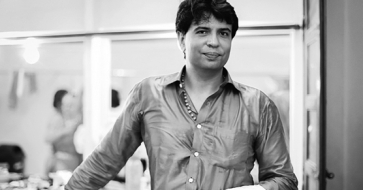
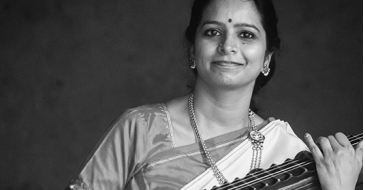
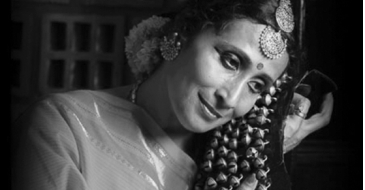
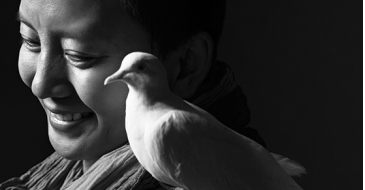
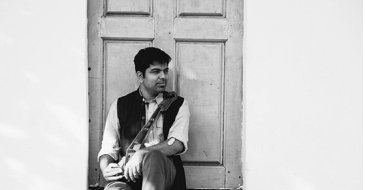
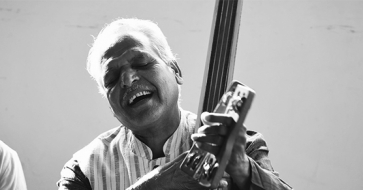
Subhashini
April 25, 2017
Vishal
April 23, 2017
Hari Haran
April 19, 2017